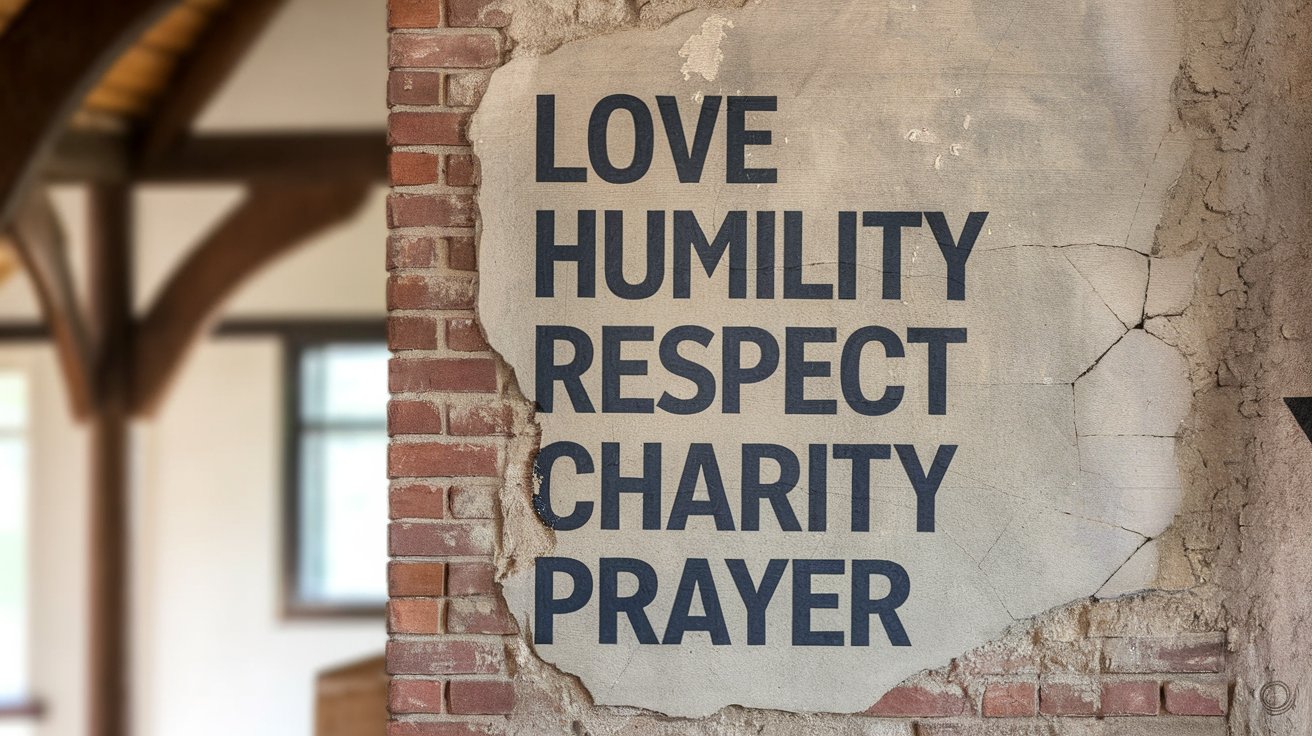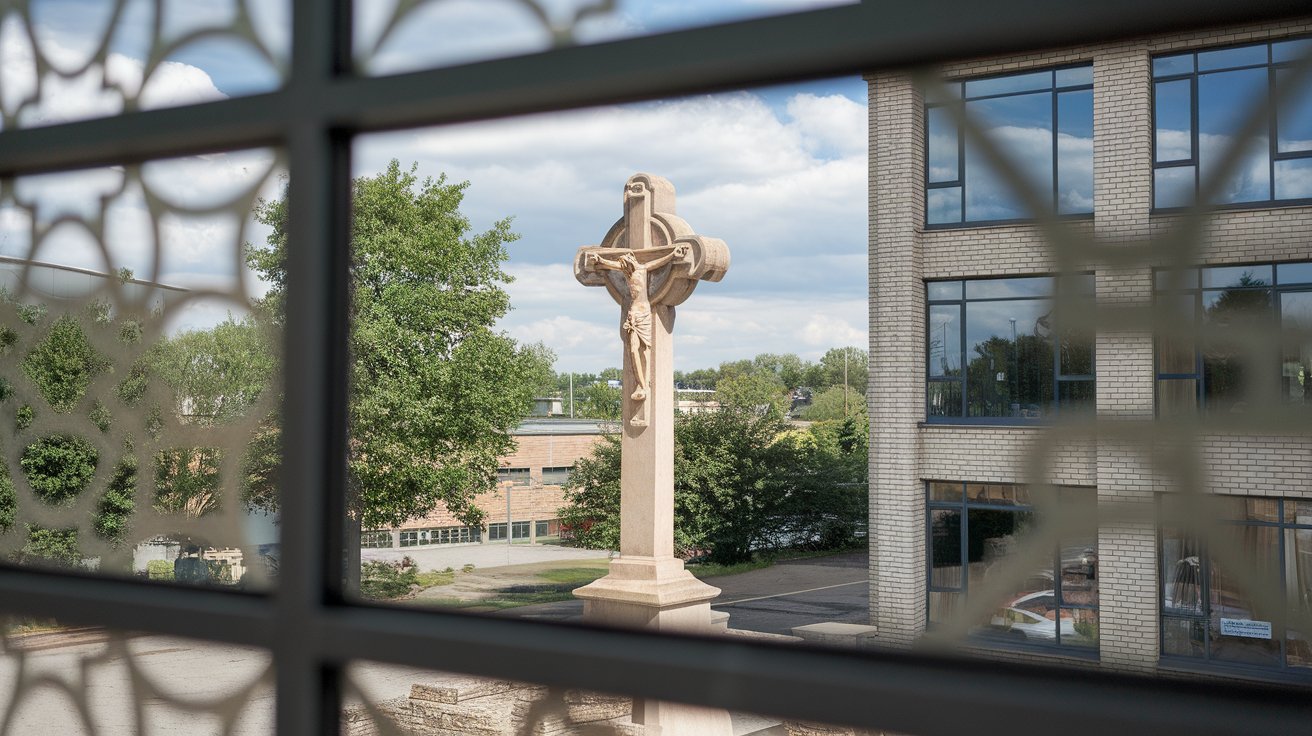The Catholic Voice in a World of Noise
In a world saturated with competing messages and digital clamor, Catholics are called not to retreat, but to engage. Our mission is to be a voice of clarity, hope, and truth, offering the light of the Gospel to a society that so often seems to be searching in the dark. This requires us to cultivate virtues of prudence in our communication, courage in our convictions, and a steadfast commitment to justice for the vulnerable.
The Craft of Faithful Communication
For the Catholic professional, especially in fields like media and communications, work is more than a job; it is a vocation. It is an opportunity to illuminate world events with the enduring wisdom of the Church and to provide a platform for those whose stories might otherwise be lost. This is not a task to be taken lightly. To speak truth into the public square requires a deep interior life, one nourished by the sacraments, by prayer like the Rosary, and by quiet moments of Eucharistic adoration. It is from this wellspring of grace that we draw the strength to remain centered amid the chaos of news cycles and public opinion.
This grounding in faith produces a calm and joyful confidence. It frees us from the anxiety of feeling that we must apologize for our beliefs. Instead, we can propose the truth in charity, understanding that our role is not merely to inform the intellect but to inspire the soul. Catholic media, at its best, is an instrument of the new evangelization, forming hearts and minds in the faith and inviting audiences to see the world not as a series of isolated crises, but as a drama of salvation in which God is profoundly active.
Speaking the truth in love, we are to grow up in every way into him who is the head, into Christ.
Ephesians 4:15
Discernment in the Digital Wilderness
The landscape of modern communication is rapidly changing, with artificial intelligence and other technologies presenting both promise and peril. The Church, in her wisdom, calls us to approach these new frontiers with careful discernment. While technology can be a powerful tool for connection, it also carries the risk of distorting our humanity. AI can generate information that is persuasive yet false, amplifying biases and creating simulations of human beings that lack the soul and substance of a person made in the image of God.
The challenge, then, is to ensure that technology remains a servant to humanity, not its master. This begins with education in our homes, parishes, and schools. We must equip the next generation with a robust literacy in both media and technology, fostering the critical thinking skills necessary to navigate a digital world overflowing with information. The goal is not to fear innovation, but to guide it with an ethical compass oriented toward human dignity and the common good. We are called to preserve the irreplaceable value of the human voice and the human face, reminding the world that true communication depends on human judgment, wisdom, and charity—qualities that no algorithm can replicate.
To help your family and community navigate this new reality, consider these small but meaningful actions:
- Set aside specific, technology-free times for genuine family conversation and prayer.
- Discuss a news article or social media trend together, asking: “What story is being told here, and what values does it promote?”
- Before sharing content online, pause and ask if it is true, good, and beautiful.
- Learn about the ways algorithms shape the information you see and seek out different perspectives.
- Champion educational initiatives in your parish or school that promote digital citizenship and ethical technology use.
Test everything; retain what is good.
1 Thessalonians 5:21
Building Peace on the Foundation of Justice
The Church’s public witness extends beyond the realms of media and technology and into the difficult work of building a just and peaceful world. The Gospel reminds us that true peace is not merely the absence of conflict, but the presence of justice. When communities are crushed by systemic poverty and economic burdens, social cohesion frays and the seeds of instability are sown. A society cannot be truly at peace while its people lack access to healthcare, education, and the basic necessities for a dignified life.
From this understanding flows the Christian call to advocate for the poor and marginalized. In places facing overwhelming national debt, for example, the call for relief is not simply a matter of economics; it is a moral imperative. Lifting such burdens can free up vital resources, allowing nations to invest in the well-being of their people and address the root causes of social ills like crime and violence. This work of promoting structural justice is an essential dimension of our faith. It requires us to see the world with the eyes of the poor, to engage in respectful dialogue with political leaders, and to work for a society where the dignity of every person is protected from conception to natural death.
Blessed are the peacemakers, for they will be called children of God.
Matthew 5:9
Putting Principles into Practice
Living out these truths requires daily intention. The following table offers concrete ways to integrate these principles into our lives as disciples in the world.
| Practice | Where to Apply | Why It Serves the Common Good | First Small Step |
|---|---|---|---|
| Speaking with Clarity and Charity | Social media, parish meetings, family discussions | It builds communion, fosters understanding, and avoids the scandal of public division. | Pause and pray for a moment before posting or speaking on a contentious topic. |
| Upholding Human Dignity Online | Use of AI, consumption of digital media, virtual interactions | It recognizes the Imago Dei in every person, whether encountered in person or through a screen. | Choose to spend time with online content that affirms goodness, truth, and beauty. |
| Giving a Voice to the Marginalized | Our communities, workplaces, and consumer choices | It fulfills the Gospel mandate to care for the “least of these” and ensures society hears all its members. | Intentionally listen to someone whose perspective or life experience is different from your own. |
| Advocating for Structural Justice | Civic engagement, workplace policies, charitable giving | It addresses the root causes of suffering and helps build a society where all can flourish. | Learn about one issue of injustice in your local community and the Catholic organizations addressing it. |
The path of the faithful citizen is one of constant learning and conversion. We are called to be a leaven in society, bringing the light of Christ to every corner of human life. This mission requires us to be courageous in our speech, prudent in our use of modern tools, and tireless in our pursuit of justice for all. By grounding our public witness in deep prayer and a love for our neighbor, we can help build a culture that honors God and serves the profound and beautiful dignity of the human person.




